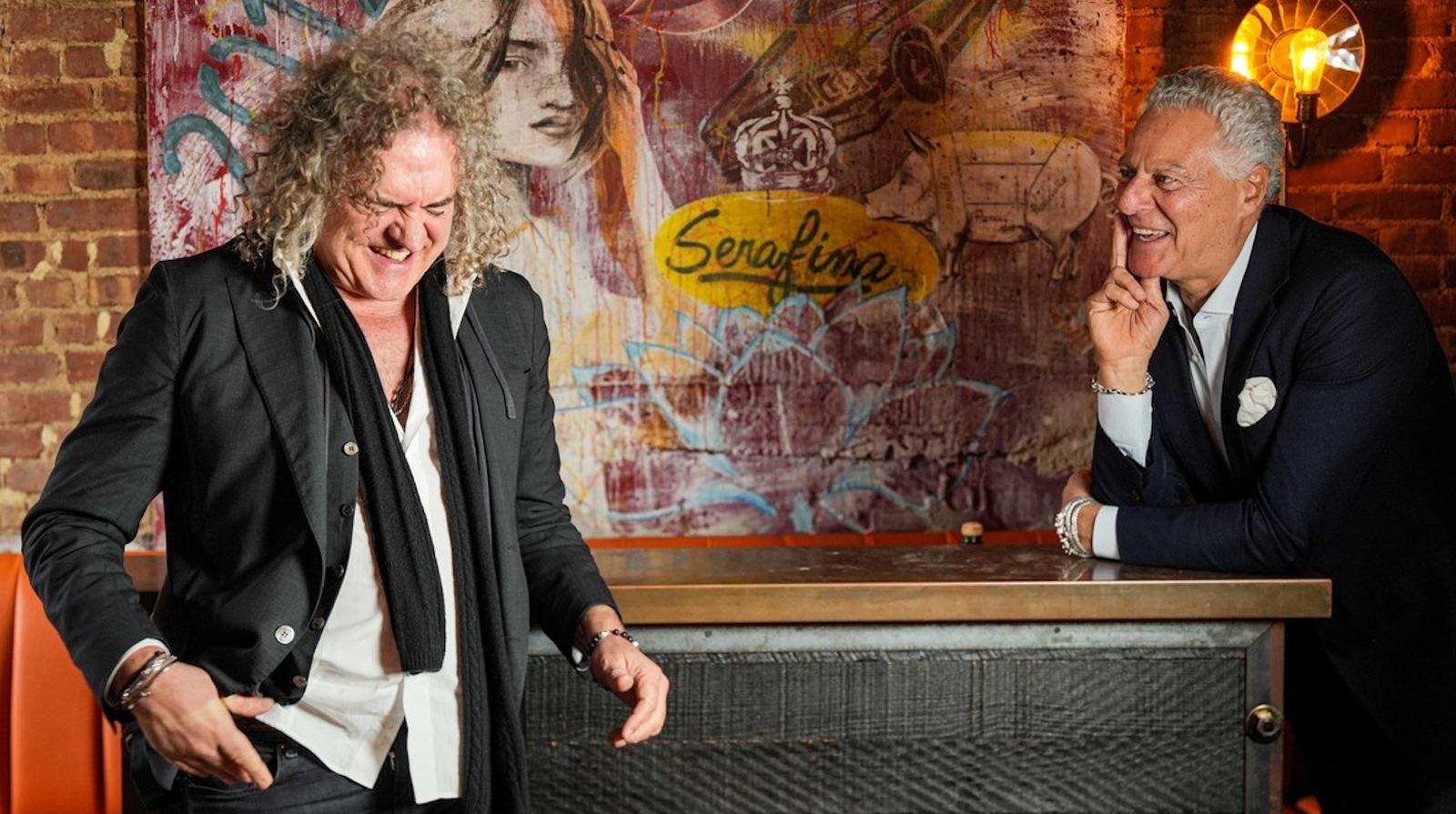How the Serafina Restaurant Group Remains Relevant After 30 Years
Vittorio Assaf and Fabio Granato operate an extensive restaurant empire with over 35 establishments under their belt. In New York City, they boast 13 Serafina outlets, two Tokugawa locations, two Brasserie Cognac spots, one Pizzeria Farinella, and their inaugural Pizza Funhouse. Yet, this significant restaurant group might never have come to fruition if not for a near-disaster.
In September 1994, while boating in Hamptons Bay, Assaf and Granato encountered a broken mast that left them stranded. In that moment, they made a pact to open a restaurant together if they managed to survive the situation. Luckily, they were rescued, and in 1995, they launched Serafina Fabulous Pizza. The initial investment of approximately $650,000 was largely self-financed, with a minor contribution from their contractor.
This was a daring leap, but the duo possessed the requisite experience to thrive within a notoriously tough industry. Having worked on the New York Stock Exchange, Assaf transitioned into marketing, public relations, and merchandising, working with clients including the fashion label Gianfranco Ferré. Significantly, he had previously opened Café Condotti, gaining firsthand restaurant experience. Granato’s background in construction and architecture provided vital skills in creating functional, aesthetically pleasing, and inviting spaces. It was their combined expertise, keen understanding of desirable atmospheres, and relentless commitment to top-quality cuisine that elevated Serafina’s profile.
Serafina: a journey through time, reflecting growth and change from past to present. Embracing the evolution of her identity.
In 1995, Serafina Fabulous Pizza was launched at 79th Street and Madison Avenue on the Upper East Side of New York City. Thirty years later, the establishment continues to thrive, maintaining its core identity. Offering exceptional food crafted from high-quality ingredients and a stylish environment with a distinctly European ambiance, the restaurant attracts a diverse clientele, thriving despite its challenging second-floor location. The menu emphasizes Northern Italian cuisine, featuring antipasti, salads, pastas, pizzas, and hearty meat dishes.
As Italian dining has evolved globally to emphasize quality, originality, and creativity, so has Serafina. “Serafina has adapted with the times, still serving the classic traditional dishes of Italy while introducing new interpretations and subtle twists on these classics to keep pace with the evolution of Italian gastronomy,” Vittorio Assaf shared with Food Republic.
The restaurateurs embark on several trips to Italy each year to source the finest ingredients for their Italian offerings. For instance, they procure their Parmigiano Reggiano (not parmesan) from Parma, Italy, and maintain a personal relationship with the local producer. “Paolo [Gennari] uses only milk from his grass-fed cows, crafting the cheese by hand in a tradition that has been handed down through generations,” Assaf expounded. This unwavering focus on quality was distinctive in the New York City culinary scene when Serafina Fabulous Pizza was established and continues to be essential to their success.
Serafina’s food consistently attracts patrons, ensuring they return for more delightful experiences.
Clearly, with an expanding array of restaurants, there is a demand for the cuisine Serafina provides. The menus at their Italian locations are substantial, featuring classic, uncomplicated, and delectable Italian dishes imbued with a touch of flair. This includes offerings such as grilled octopus with tomatoes, onions, olives, and potatoes, spicy penne alla vodka (often referred to as disco pasta in New York City), branzino served with cherry tomatoes, and pizza quattro stagioni. The Serafina Osteria concept leans towards more inventive dishes like tagliolini crafted with cantaloupe, Italian anchovies, and cream, or Cornish hen accompanied by a spicy brandy reduction.
Another of their concepts, Serafina Vino e Cucina, simplifies the process of finding the ideal wine pairing by incorporating suggested wine matches directly on the menu alongside classic Serafina dishes. A glass of acidic and herbal Pecorino is recommended for the prosciutto and burrata antipasto. Risotto porcini pairs well with a Chianti Classico, while the Serafina burger complements fruity and bubbly lambrusco. The spaghetti cacio e pepe, served with a glass of Franciacorta Mirabella Blanc de Blanc — a dry, mineral-driven sparkling wine from Lombardy, Italy — is a personal favorite of Vittorio Assaf, who also favors the tiramisu for dessert.
Serafina Restaurant Group offers both French and Japanese dining concepts.
Vittorio Assaf and Fabio Granato have built strong partnerships with like-minded individuals to bring vibrant non-Italian concepts to fruition. Assaf’s passion for French cuisine originated in his youth and deepened through his friendship with accomplished chef Eric Ripert. This connection inspired the Serafina founders to collaborate with chef Florian Hugo in opening their French venture in 2008: Brasserie Cognac de Monsieur Ballon.
The menu mirrors the offerings at the Serafina Italian restaurants while adding a modern twist. Currently managed by Chef Luis Gutierrez, an alumnus of Hugo, diners can look forward to iconic Brasserie Cognac dishes such as tuna tartare with wasabi and ponzu, delectable cheese gougeres, and a Niçoise salad crafted with Italian tuna.
Leveraging the skills of trusted associates also inspired Geisha — Assaf and Granato’s now-closed 2003 entry into Japanese cuisine alongside chefs Eric Ripert and Kazuo Yoshida. While sushi and sashimi might seem a stark contrast to pizza and pasta, for Assaf and Granato, there is a shared element. Both cuisine types depend on “an immense passion and an unending quest for the finest quality ingredients,” Assaf elaborates. Fifteen years later, chef Kazuo Yoshida now leads another Serafina concept, Tokugawa, featuring seasonal omakase and a seafood-centric à la carte menu.
Serafina remains committed to its ethos, consistently delivering its core values regardless of the location.
Serafina boasts 16 restaurants beyond New York City, 12 of which are situated outside the United States; three are even located in Italy. Whether Serafina is serving authentic Italian dishes in Puerto Rico, Japan, or India, diners can always anticipate the same expert preparations made with “ingredients [that] are naturally sourced and handcrafted with love and dedication,” assures Assaf. Guests can indulge in the signature tartufo nero (black truffle) pizza in any location, whether in Manhattan, San Juan, or Tokyo.
“We only make slight modifications to our menu to accommodate local tastes and traditions, mainly adjusting the level of spice or salt,” he clarifies. Local ingredients are incorporated where suitable, and portion sizes are tailored to align with regional customs. Occasionally, Serafina draws inspiration from local dishes, integrating them into their menu. For instance, in Turkey, their breakfast menu features a dish called menemen: scrambled eggs infused with tomatoes, onions, and peppers.
What are the upcoming plans for Serafina Restaurant Group?
As of this writing, Pizza Funhouse is the newest addition to the Serafina Restaurant Group, having opened in May 2024. It diverges from other Serafina ventures with its relaxed atmosphere, nostalgic ’60s-style booths, and vibrant colors. The menu features milkshakes and classic Italian-American dishes. The restaurant serves as a tribute to New York City’s unique pizza culture and to the American television that Vittorio Assaf and Fabio Granato grew up watching — particularly the show “Happy Days.”
To ensure Pizza Funhouse thrives, Assaf and Granato continue to rely on strong partnerships and high-quality ingredients. “We have a fantastic team at Pizza Funhouse who have background in some of NYC’s top pizza joints, and they’re creating some truly innovative New York-style slices, all while using the finest ingredients that we import directly from Italy,” Assaf shares. Looking ahead, the duo is contemplating a venture south of the border. They are avid fans of Mexican cuisine and spirits, with Assaf stating, “We would love to deepen our understanding of Mexican food, tradition, and hospitality, and potentially create something exciting in that cuisine.”

